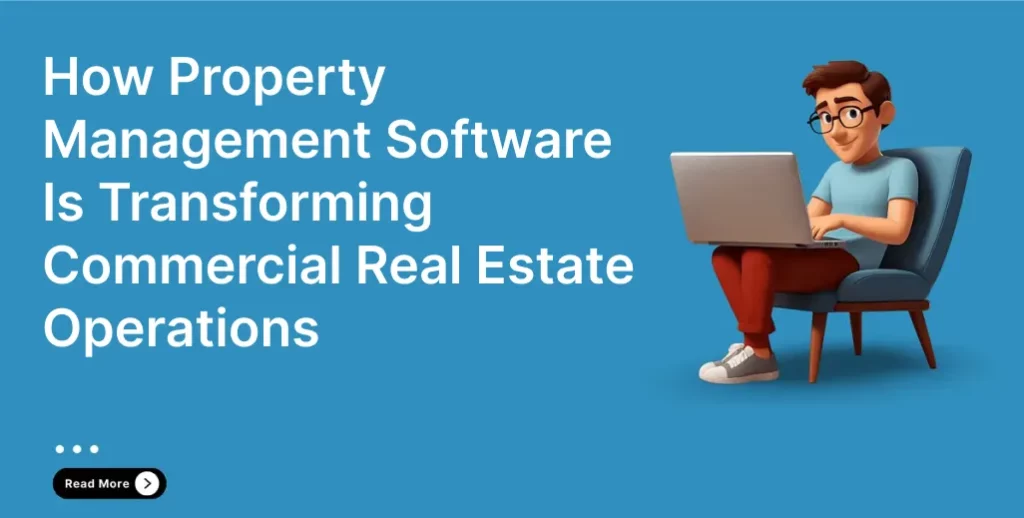

Managing commercial real estate portfolios has always been a complex process, from handling leases and tenant communications to tracking maintenance, finances, and compliance. As property portfolios expand, so does the need for efficient, connected systems that eliminate silos and improve decision-making.
That’s where modern property management software comes in. Today’s digital tools are giving real estate firms and developers a competitive edge by streamlining workflows, automating repetitive tasks, and delivering real-time data insights. The result is a more transparent, scalable, and profitable business model for property owners and managers alike.
Commercial property management requires seamless coordination between multiple departments, accounting, maintenance, leasing, and asset management. Using disconnected systems can slow down operations and create costly data inconsistencies.
Integrated platforms now allow property managers to centralize these functions in one place, ensuring accurate financial tracking and improved communication across teams. With automation handling recurring billing, maintenance requests, and reporting, companies can focus on strategy instead of administrative tasks.
Firms utilizing advanced property management tools are not only improving operational efficiency but also gaining better visibility into performance across multiple assets and locations.
Data is the backbone of smart decision-making in real estate. Yet, many companies still rely on outdated spreadsheets or manual data entry that can lead to costly errors. Cloud-based management platforms now provide real-time analytics, dashboards, and reporting that enable executives to view performance at a glance.
These systems eliminate guesswork by providing accurate insights into rental income, occupancy rates, and maintenance costs. With data stored securely in the cloud, team members can collaborate remotely and access critical information anytime; from the office, job site, or mobile device.
To learn more about how data-driven platforms are improving financial accuracy and transparency, explore industry-leading property technology case studies and insights.
A tenant’s experience is directly tied to how efficiently a property is managed. Delayed maintenance, poor communication, or unclear billing can quickly lead to dissatisfaction and turnover. Modern software solutions now include portals that allow tenants to submit service requests, view invoices, and communicate directly with property managers in real time.
Automated notifications, preventive maintenance schedules, and AI-assisted issue tracking ensure that nothing falls through the cracks. These features not only enhance tenant satisfaction but also protect the property’s long-term value by preventing small issues from becoming major repairs.
The shift toward proactive maintenance management is redefining how owners and managers maintain tenant relationships and operational stability.
One of the most significant advantages of modern property management systems is their ability to integrate with existing business applications. Accounting, customer relationship management (CRM), and enterprise resource planning (ERP) tools can now work together seamlessly, providing a unified view of operations.
Cloud integration ensures scalability; allowing firms to add new properties, users, or features without expensive infrastructure changes. It also strengthens security, as updates and backups are handled automatically within encrypted systems.
Organizations implementing these connected platforms are finding it easier to expand portfolios, onboard new teams, and maintain data integrity across global operations.
The commercial real estate industry is rapidly evolving, and success now depends on embracing technology that supports agility, accuracy, and insight. Automation and analytics are no longer optional, they’re essential to staying competitive in a market defined by speed and transparency.
As property owners and developers look to optimize their operations, investing in comprehensive PropTech platforms can transform how they work, collaborate, and grow.
For insights into unified solutions designed for modern property management, visit Elevate Solutions and explore how innovation is shaping the next generation of real estate software.
Whether managing a single building or a nationwide portfolio, digital transformation is no longer a luxury, it’s a necessity. Software-driven workflows help teams make faster, smarter decisions while improving accountability and performance.
To discover how tailored technology can optimize your operations and enhance portfolio performance, visit https://www.elevatesolutionsre.com/ for resources and case studies on intelligent property management.







We use cookies to improve your experience on our site. By using our site, you consent to cookies.
Manage your cookie preferences below:
Essential cookies enable basic functions and are necessary for the proper function of the website.
Google reCAPTCHA helps protect websites from spam and abuse by verifying user interactions through challenges.
Google Tag Manager simplifies the management of marketing tags on your website without code changes.
Statistics cookies collect information anonymously. This information helps us understand how visitors use our website.
SourceBuster is used by WooCommerce for order attribution based on user source.
Marketing cookies are used to follow visitors to websites. The intention is to show ads that are relevant and engaging to the individual user.
Facebook Pixel is a web analytics service that tracks and reports website traffic.
Service URL: www.facebook.com (opens in a new window)
You can find more information in our Cookie Policy and Privacy Notice.